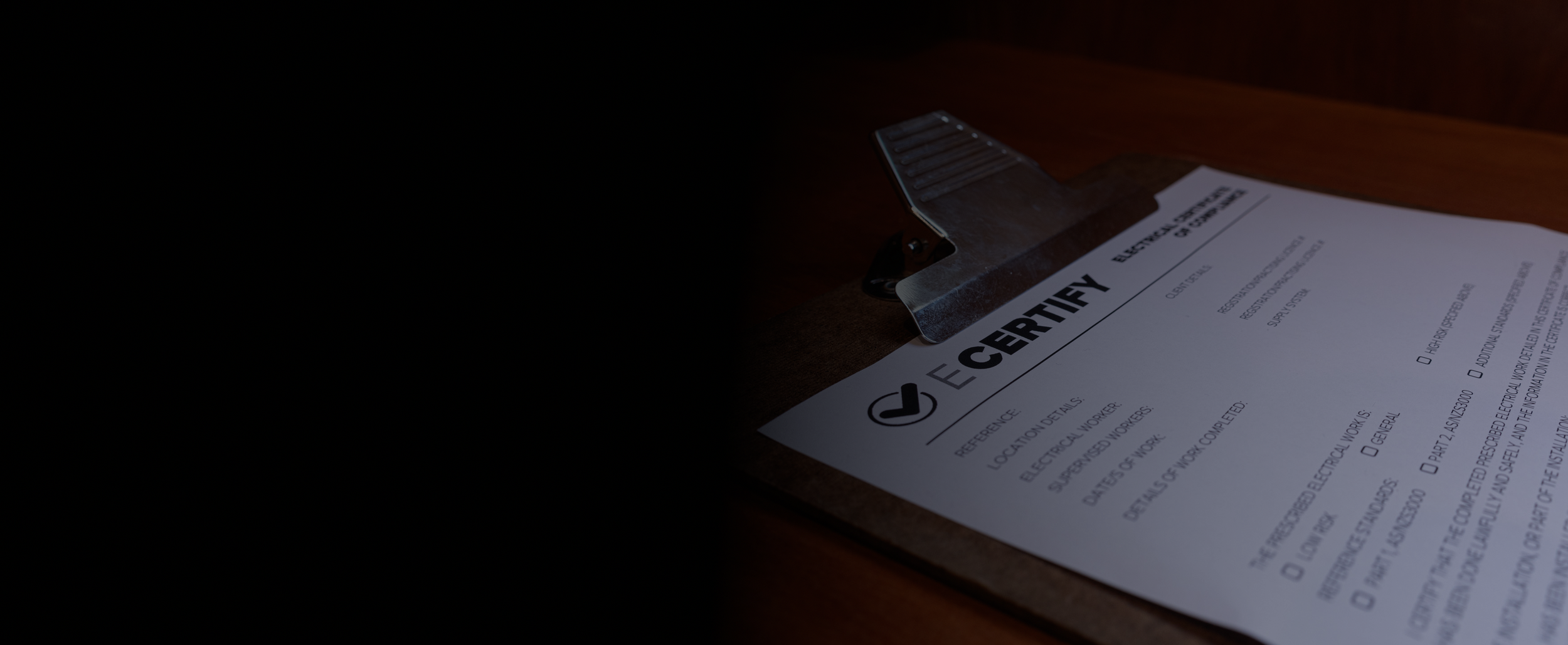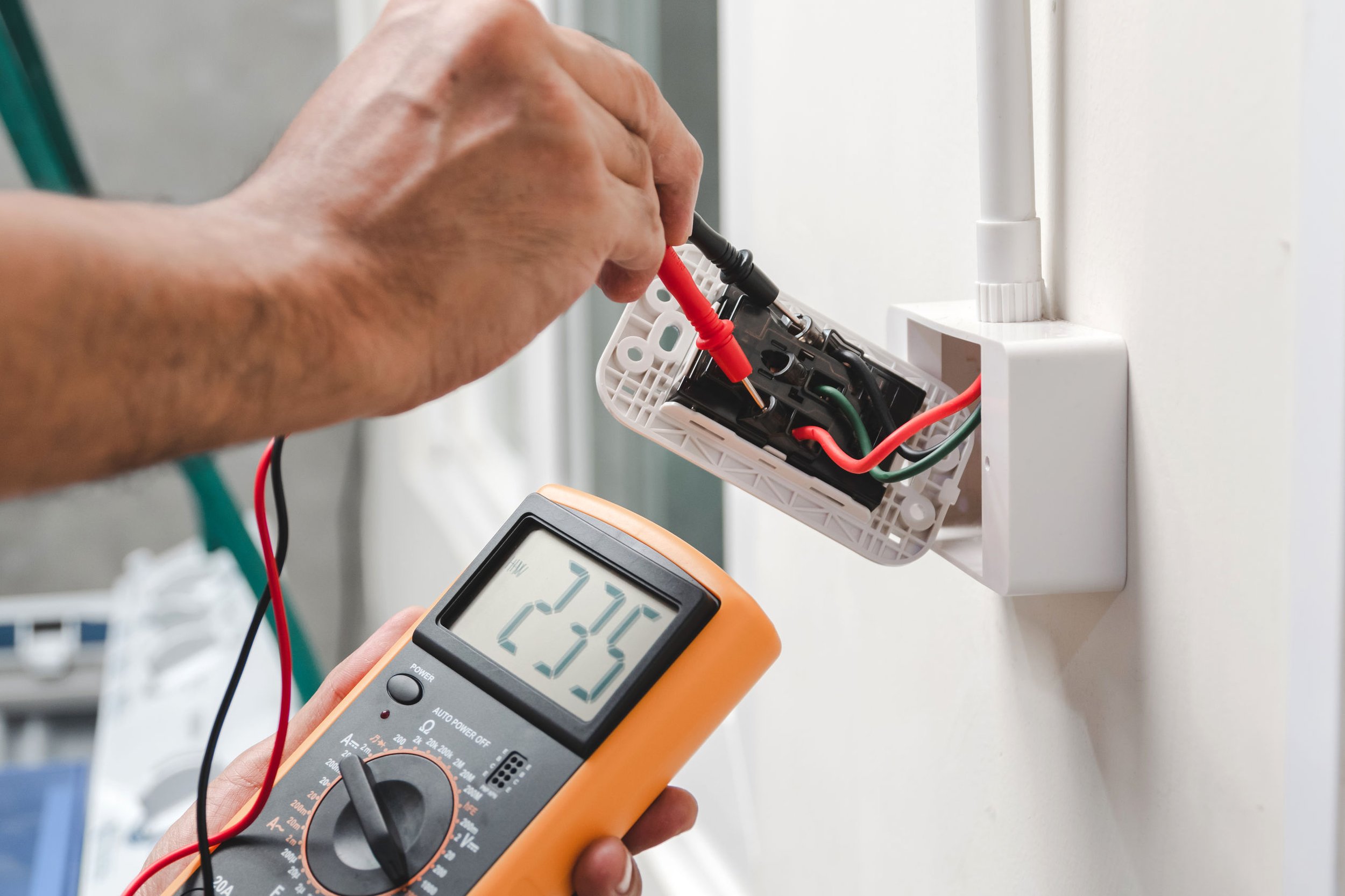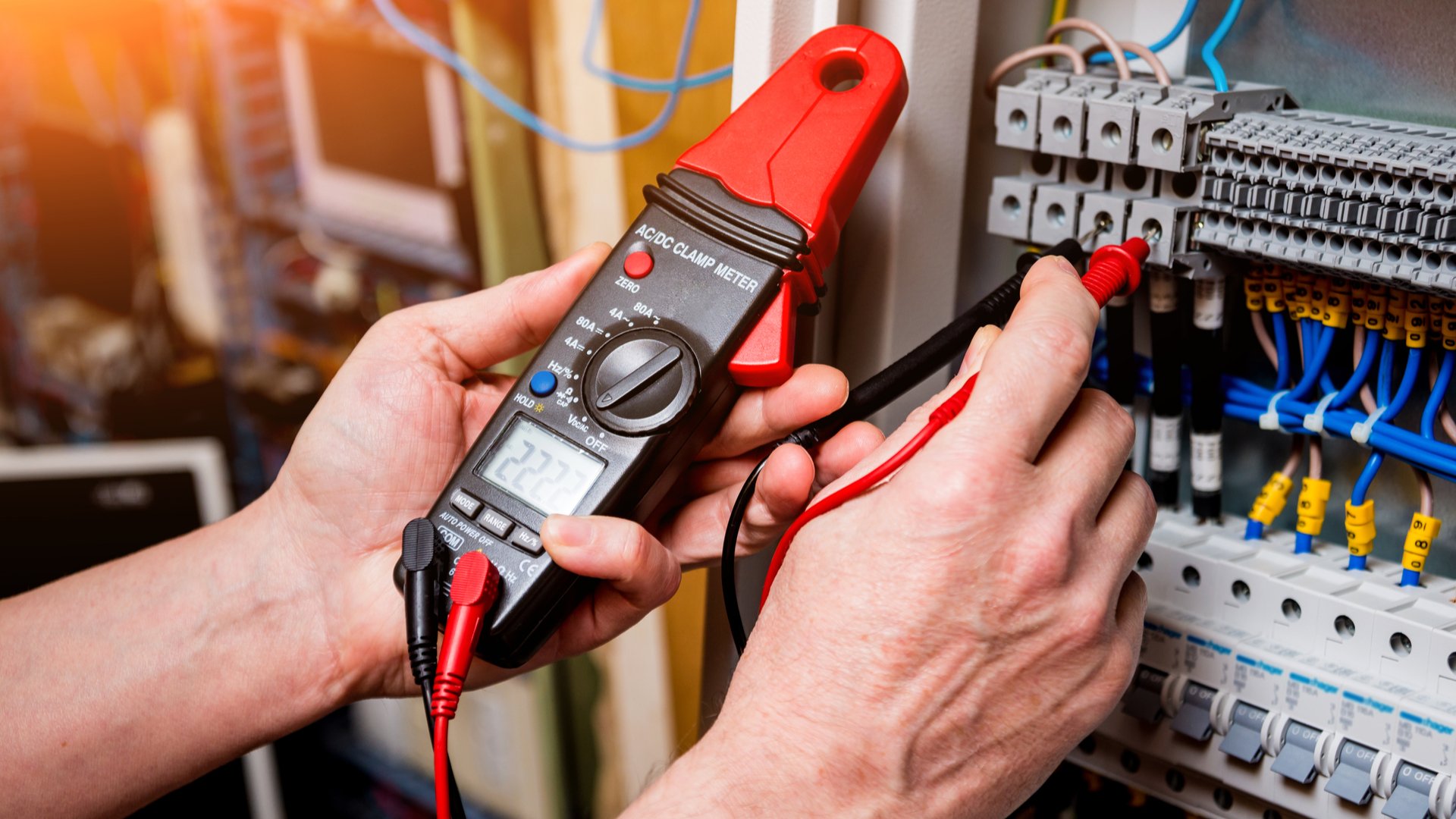
Electrical Certification
Electrical Certificates can be confusing
Contact us for clear, straightforward solutions

WHICH ELECTRICAL CERTIFICATE
DO I NEED?
There are many forms of electrical certificate
the type that you need depends on your installation
We’ve broken it down below - but if you’re not a fan of reading, get in touch
E Certify is the company to contact if you need an Electrical Certificate in Auckland.
Energy Works Certificate
Insurance companies and councils will often ask for an ‘energy works certificate’
This is a catch-all term, relating to all types of electrical certification
The type of Energy Works Certificate you need depends on your installation
Unsure what type of certificate you need? We’re here to help
Let us help you with your Energy Works Certificate in Auckland
Electrical Safety Certificate (ESC)
This is the most basic type of Energy Works Certificate.
An Electrical Safety Certificate (ESC) is issued by registered electrical workers on completion of low-risk electrical work like maintenance, repair or replacements. It certifies that what they have installed is safe to connect to the electrical supply
By law, electrical workers must issue an ESC within 20 days of connecting any electrical work.
Electrical Certificate of Compliance (COC)
The most common Energy Works Certificate issued by electricians.
An Electrical Certificate of Compliance (COC) is issued by registered electrical workers on completion of general-risk electrical work, such as additions, alterations or new installations.
The COC document will include an ESC section as above
(called a combined COC&ESC)
Electrical Record of Inspection (ROI)
Another type of Energy Works Certificate is an ROI
When an electrical worker completes high-risk work, their installation needs to be checked over by a registered electrical inspector.
High Risk Examples: Mains supply cabling and earthing - Solar installations - Parallel Generation
The electrical worker who completed the high-risk work will issue an Electrical Certificate of Compliance
The electrical inspector will issue a Record of Inspection (ROI) and record the details on Energy Safety’s High Risk Database.
Both the combined COC&ESC and ROI are required to certify high risk electrical work.
E Certify has the friendliest Electrical Inspector in Auckland on the team
If you’re an electrical worker who needs your high-risk work certified, contact us for an electrical inspection in Auckland.
Energy Meter Inspections (ROI)
A property’s energy meter is provided by the network retailer in conjunction with a Metering Equipment Provider (MEP).
Meter installations, relocations, re-wires and meterboard upgrades all require inspection by a Network Warranted Electrical Inspector (Warranted Person)
These type of electrical inspection are commonly known as meter hanging, meter shifts or meter resealing.
This requirement ensures that the meter has been wired correctly and has not been tampered with during the work / installation.
The electrical worker who completed the work involving the meter will issue an Electrical Certificate of Compliance (Combined COC&ESC)
The Inspector (Warranted Person) will issue a Record of Inspection (ROI) and record the details on Energy Safety’s High Risk Database.
Certificate of Verification (COV)
A Certificate of Verification (also known as COV) is a type of Electrical Certificate that can be used when:
You don’t have any existing documents and an insurance company requires electrical certification
You’ve had electrical work completed but can’t get certification from the installers
Your existing installation has been disconnected for longer than 6 months and requires reconnection
You believe your installation is unsafe (either due to age, improper installation or damage)
A certificate of verification must be issued by a registered electrician or inspector - such as ourselves
E Certify will inspect your installation under AS/NZS3019 to ensure it is safe and up to code before providing the Energy Works Certificate
E Certify can provide your Electrical Certificate in Auckland
Think we can help? Get in touch!

Testimonials
Energy Works Certificate
Legal Requirements
All requirements for electrical certification can be found in the Electricity Safety Regulations 2010
If you have questions or concerns about an existing Energy Works Certificate in Auckland,
or if you are struggling to get an Energy Works Certificate in Auckland - get in touch.
General Rules
An electrical worker who completes prescribed electrical work is required by law to issue an Energy Works Certificate after connecting a fitting / installation to the electrical supply.
If the work completed was high-risk, they are required to have the work inspected by a registered electrical inspector
An Energy Works Certificate must be issued no later than 20 working days after connection, to the person or entity that requested the work
An Energy Works Certificate is a legal document, stating that the work completed is electrically safe and complies with the relevant codes and standards
If an electrical worker has carried our electrical work and has connected it to the power supply then they cannot withhold an Energy Works Certificate for any reason
The electrical worker must keep a copy of the Energy Works Certificate for at least 7 years, and is required to produce it within 10 working days upon request by relevant parties

GET IN TOUCH
Let’s find solutions for your electrical issues
Contact us today and we’ll get back to you quickly with clear advice, expert knowledge and straightforward solutions.

